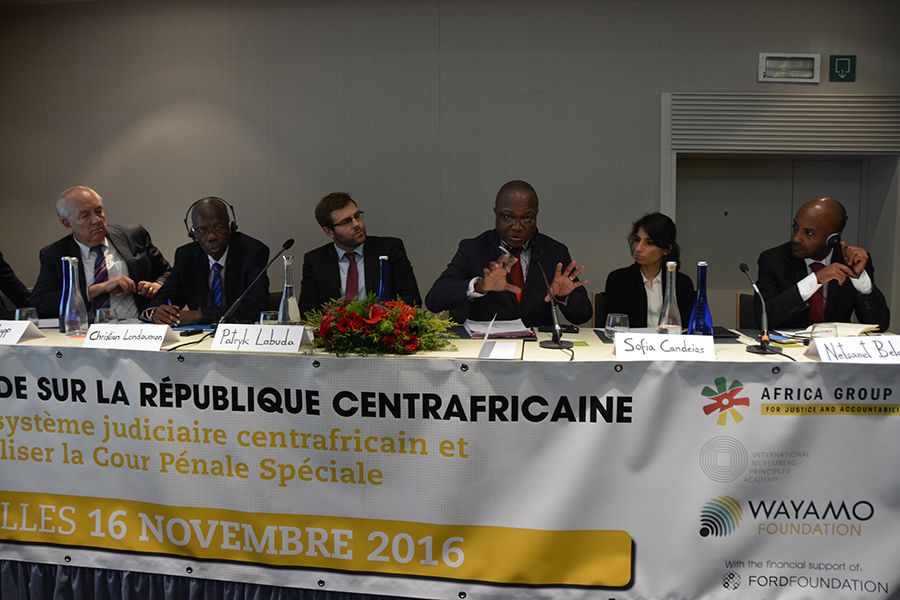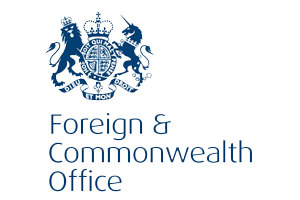
Capacity Building Workshops For The Members Of The Special Criminal Court In The Central African Republic
The Special Criminal Court (SCC) of the Central African Republic was created on 3 June 2015 by Organic Law No. 15.003. Pursuant to Article 3, the SCC has jurisdiction to “try serious violations of human rights law and serious violations of international humanitarian law committed on the territory of the Central African Republic since 1 January 2003, as defined by the Central African Republic Penal Code, and under the international obligations entered into by the Central African Republic in the field of international law, in particular the crime of genocide, crimes against humanity and war crimes.’’
This Court will operate alongside the national courts and the International Criminal Court (ICC), and a strategy will have to be finalised to clarify the relationship between these three jurisdictions. Operationalising the SCC will be an enormous task which will require strong political and financial support. Not only will the Court have to address many complex and serious crimes in a dangerous environment (only 12 of the country’s 16 prefectures are under the control of the national army), but it will also have to operate with limited financial human resources, and its team of national and international prosecutors will have to work together and gain public confidence.
In order to support the SCC’s establishment and full operationalisation, the Wayamo Foundation has in the last year, held international symposia and workshops to raise awareness about its significance and importance, and the need to build domestic capacities. Indeed, the Wayamo Foundation and the Africa Group for Justice and Accountability (AGJA) are drawing on their shared expertise and knowledge to run a capacity-building programme for the newly appointed members of the SCC.
In July 2017, the Wayamo Foundation and the AGJA convened a two-day training workshop (10-11 July), marking the first time that the new staff members had all been brought together. Over the course of the two days, the participants -who included the judges, prosecutor, deputy prosecutor, and national and international personnel- were given the opportunity to learn from the experiences and lessons of colleagues from other international organisations and courts, including the Extraordinary African Chambers (EAC) in the Senegalese Courts, which had successfully prosecuted Hissène Habré in 2016. SCC Prosecutor, Toussaint Muntazini concluded by saying, “This is the first time that we all met together over six days of training and informal activities. It allowed us to build a team and develop a team spirit. The work during these past six days has been extremely intense and very instructive. We benefited from the experience of those who have worked in jurisdictions that preceded the SCC and, personally, I feel much stronger in the belief that many people want the SCC to succeed and are ready to support the Court in this immense and difficult task ahead.”
The Wayamo Foundation organises and convenes capacity-building training sessions for the newly nominated members of the Court, to equip them with the knowledge and skills necessary to investigate and prosecute violations of human rights and international humanitarian law committed since 2003 in the Central African Republic.
ACTIVITIES 2016-2017
- September 2016, Bangui, Central Africa: AGJA Mission to Bangui, high-level meetings with the Ministry of Justice, the Attorney-General, the Multidimensional Integrated Stabilisation Mission in the Central African Republic (MINUSCA), and civil society
- September 2016, Bangui, Central Africa: International Symposium “Special Criminal Court for Central African Republic — Context, Challenges and Perspectives”
- November 2016, Brussels, Belgium: Side Event “Strengthening the Central African Republic justice system and operationalising the Special Criminal Court”
- 7-8 July 2017, Dakar, Senegal: International Symposium “Changing the Narrative – From Withdrawal to Constructive Engagement”.
- 10-11 July 2017, Dakar, Senegal: training of members of the Special Criminal Court – lessons learnt from the Extraordinary African Chambers in the Senegalese Courts
PROJECT COUNTRY
Central African Republic.
BENEFICIARIES
Members of the Special Criminal Court and the wider public in the Central African Republic.
PARTNERS
Ministry of Justice of the Central African Republic, MINUSCA, the Special Criminal Court, Extraordinary African Chambers in the Senegalese Courts, and Catherine Samba-Panza former Transitional President of the Central African Republic.



